Problem-Solving Skills Easy Addition Worksheets for 4-Year-Olds
7 filtered results
-
From - To
Improve your child's early math skills with our engaging "Problem-Solving Skills Easy Addition Worksheets" for 4-year-olds! Designed to make learning fun and accessible, these worksheets provide numerous opportunities for young learners to practice simple addition problems in a playful context. Each worksheet encourages critical thinking and problem-solving skills, helping children not only understand basic math concepts but also develop their cognitive abilities. Perfect for parents and educators, our printable resources foster concentration and boost confidence in young mathemeticians. Dive into this interactive learning experience and watch your child excel in their mathematical journey—one fun exercise at a time!
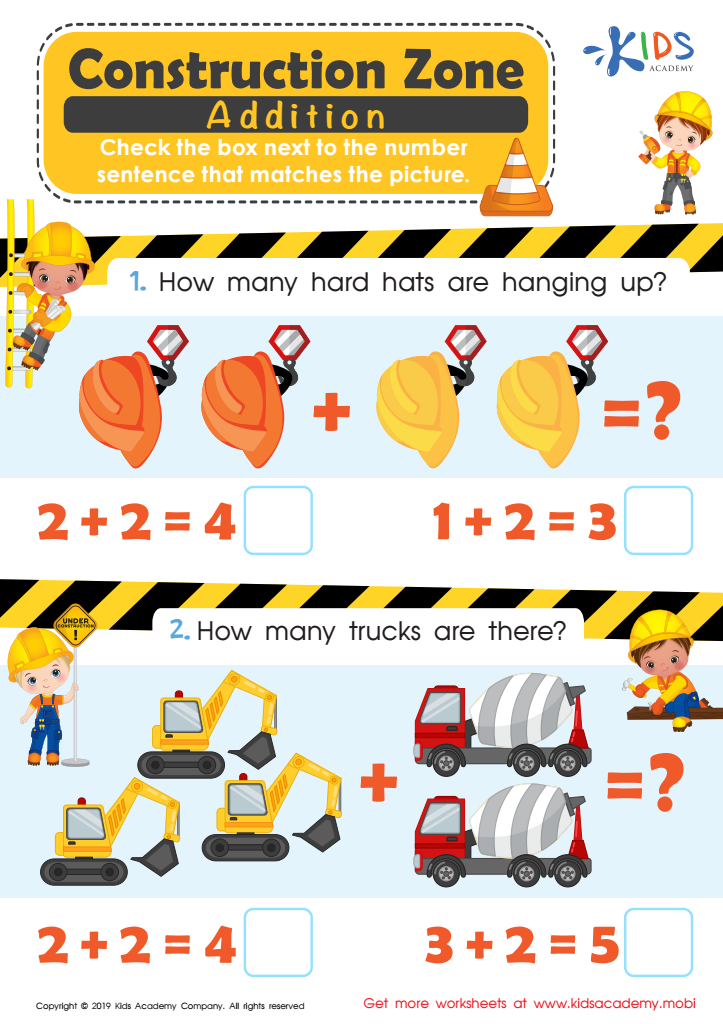

Construction Zone Addition Worksheet
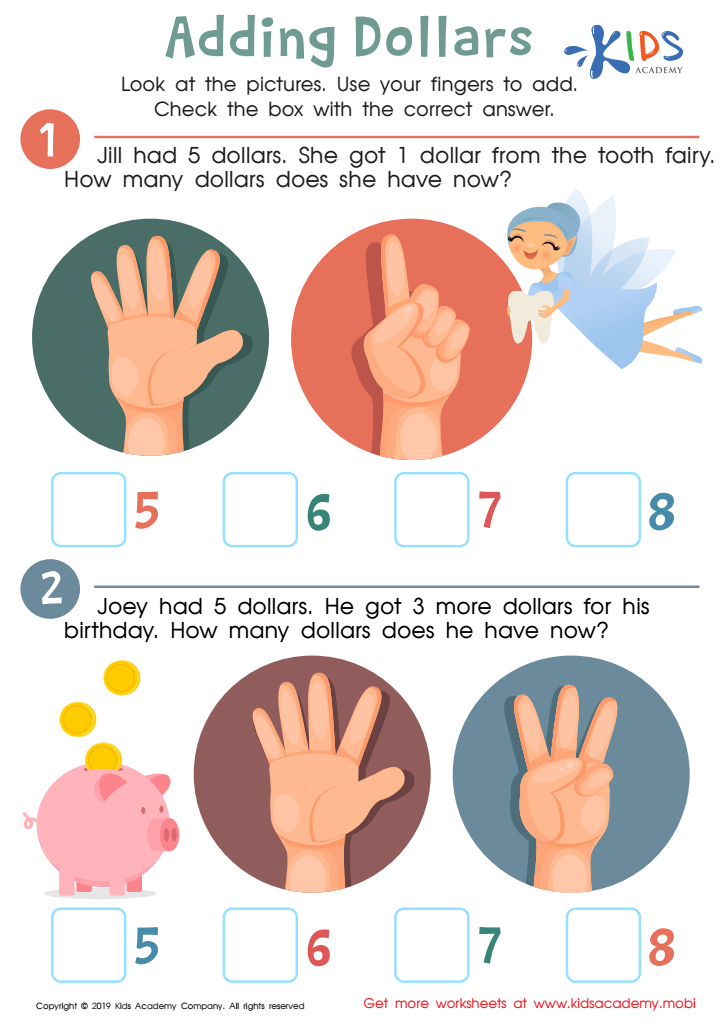

Tooth Fairy Addition Worksheet
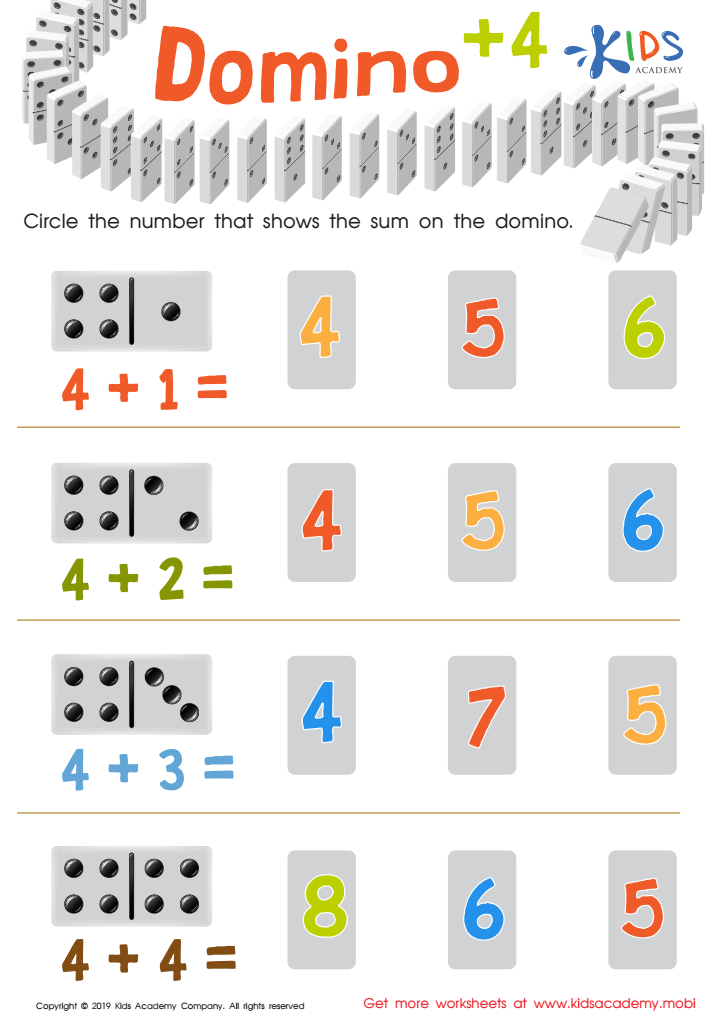

Domino +4 Worksheet
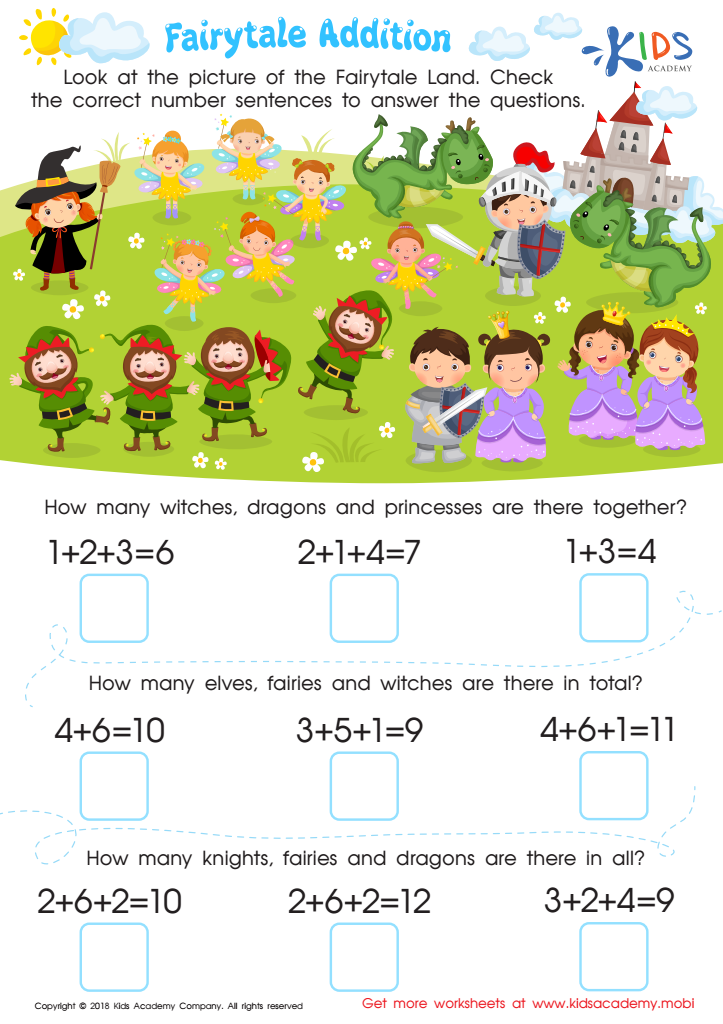

Fairytale Addition Worksheet
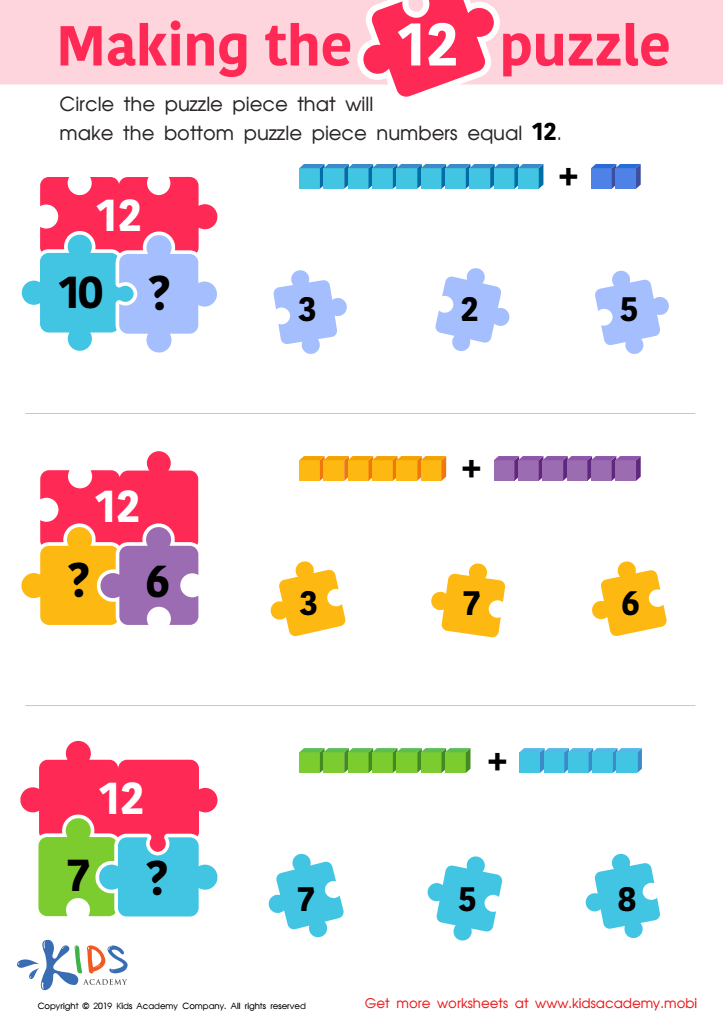

Making the 12 Puzzle Worksheet
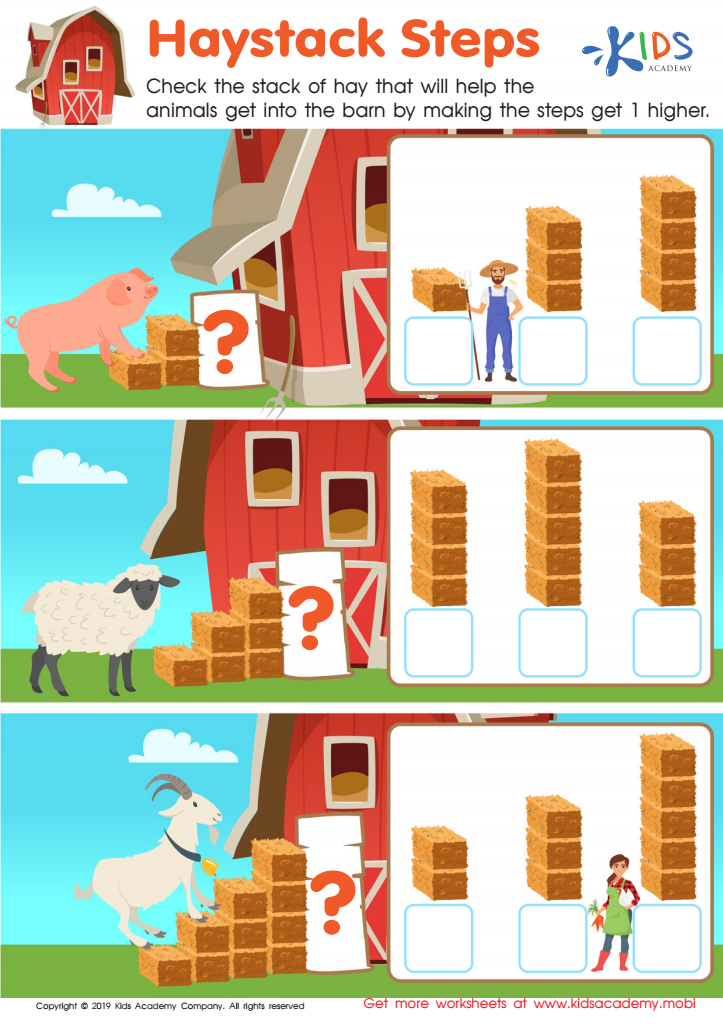

Haystack Steps Worksheet
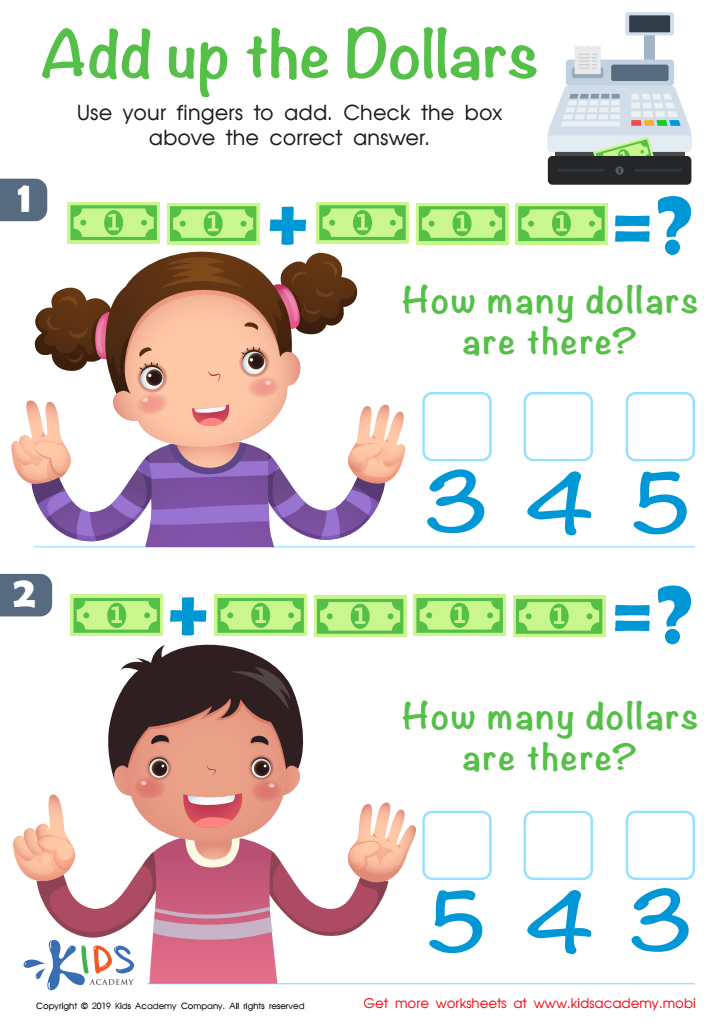

Add up the Dollars Worksheet
Problem-solving skills are crucial for young children, especially when it comes to foundational concepts like easy addition. For 4-year-olds, engaging in simple addition activities encourages critical thinking, enhances cognitive development, and lays the groundwork for more complex mathematical concepts. Parents and teachers should prioritize fostering these skills as early interactions with numbers can cultivate a positive attitude towards mathematics.
By introducing easy addition through playful methods—such as using toys, interactive games, or daily routines—children develop their ability to think divergently and approach problems with confidence. This not only aids their numeracy skills but also nurtures their overall problem-solving aptitude, which is essential for academic and life success.
Additionally, mastering basic addition strengthens children’s fine motor skills and hand-eye coordination when they work with manipulatives. Engaging in group activities fosters social skills and collaboration, reinforcing that learning is a shared journey. As problem-solving skills blossom, children become more adept at tackling challenges independently, preparing them for future academic pursuits. Ultimately, investing time in developing easy addition and problem-solving skills at a young age will yield long-term benefits, fostering resilient learners who approach challenges with curiosity and creativity.
 Assign to My Students
Assign to My Students




















